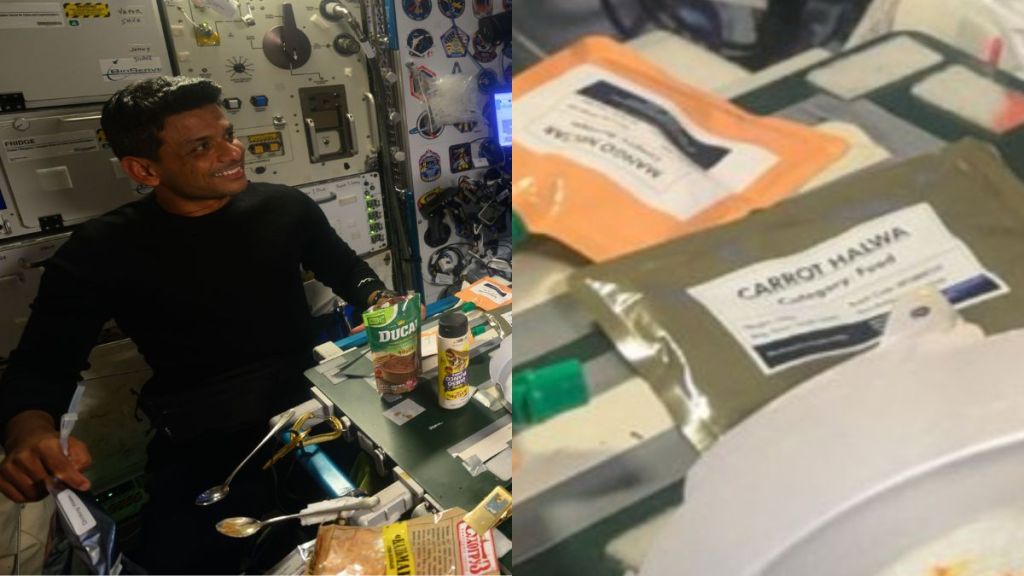Group captain Shubhanshu Shukla and pilot of the Axiom-4 mission shared a meal with fellow astronauts in the International Space Station (ISS). As visuals appeared on social media, Indians couldn’t help but notice the packaged “carrot halwa” Shukla shared with the crew. His wife, Kamna, shared a heartfelt post on Instagram and shared that gajar ka halwa was Shubhanshu’s favourite sweet. “In a very ‘sweet’ way the universe wanted to remind him of his mother in space,” she wrote.
The meal was not just an exchange of food but a celebration of cultures from across the world – interestingly, in space. The special treat was developed for space by ISRO and DRDO for the small gathering at space station as the end of the Axiom-4 mission comes closer.
The meal featured a diverse menu from shrimp cocktails and crackers to fajitas and a cake for dessert. The “gajar ka halwa” was a highlight for Indians rooting for the success of this mission. Astronaut Jonny Kim took to X and shared some pictures from the gala in space. “One of the most unforgettable evenings I’ve experienced on this mission was sharing a meal with new friends, Ax-4, aboard the International Space Station. We swapped stories and marveled at how people from diverse backgrounds and nations came together to represent humanity in space.”
One of the most unforgettable evenings I’ve experienced on this mission was sharing a meal with new friends, Ax-4, aboard the International @Space_Station.
We swapped stories and marveled at how people from diverse backgrounds and nations came together to represent humanity in… pic.twitter.com/hdzXxrwLaV
— Jonny Kim (@JonnyKimUSA) July 10, 2025
Axiom-4 mission update
Axiom-4 mission (Ax4) crew, including Indian astronaut Group Captain Shubhanshu Shukla and three other crew members, is scheduled to undock from the International Space Station (ISS) on July 14.
According to the statement shared by Axiom Space, the Ax4 crew is scheduled to undock from the Space Station not earlier than 7:05 am ET (approximately 4:30 pm IST) on Monday. The crew was slated to embark on a return journey on July 10. However, the crew will not return to Earth according to the original schedule, extending their stay on the International Space Station by at least four days, according to the European Space Agency (ESA).
Shubhanshu “Shux” Shukla
Group Captain Shubhanshu Shukla conducted three experiments. In the first instance, he worked on the sprouts project to study how microgravity affects germination and early plant development. In another experiment, he deployed and stowed microalgae, which are being investigated for their potential to produce food, oxygen, and even biofuels.


